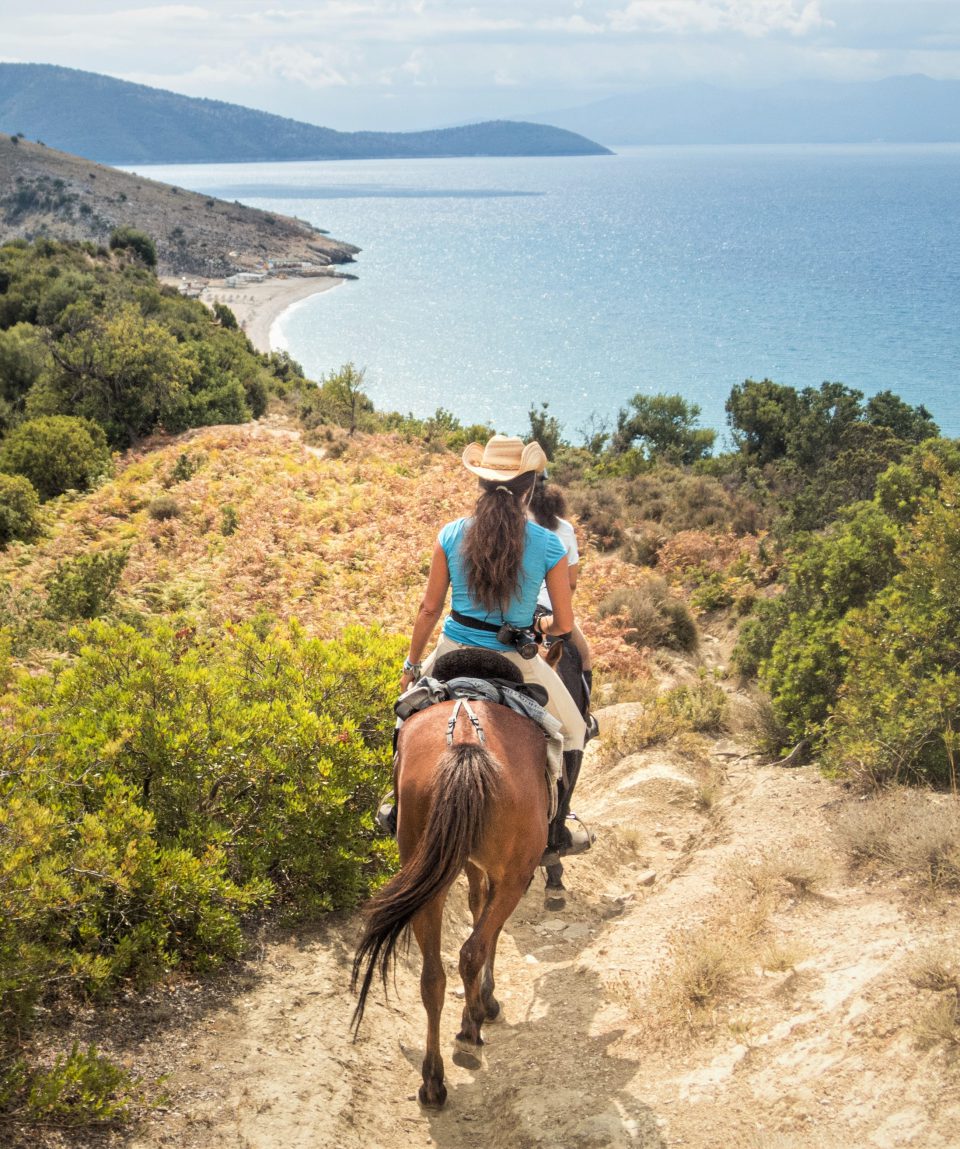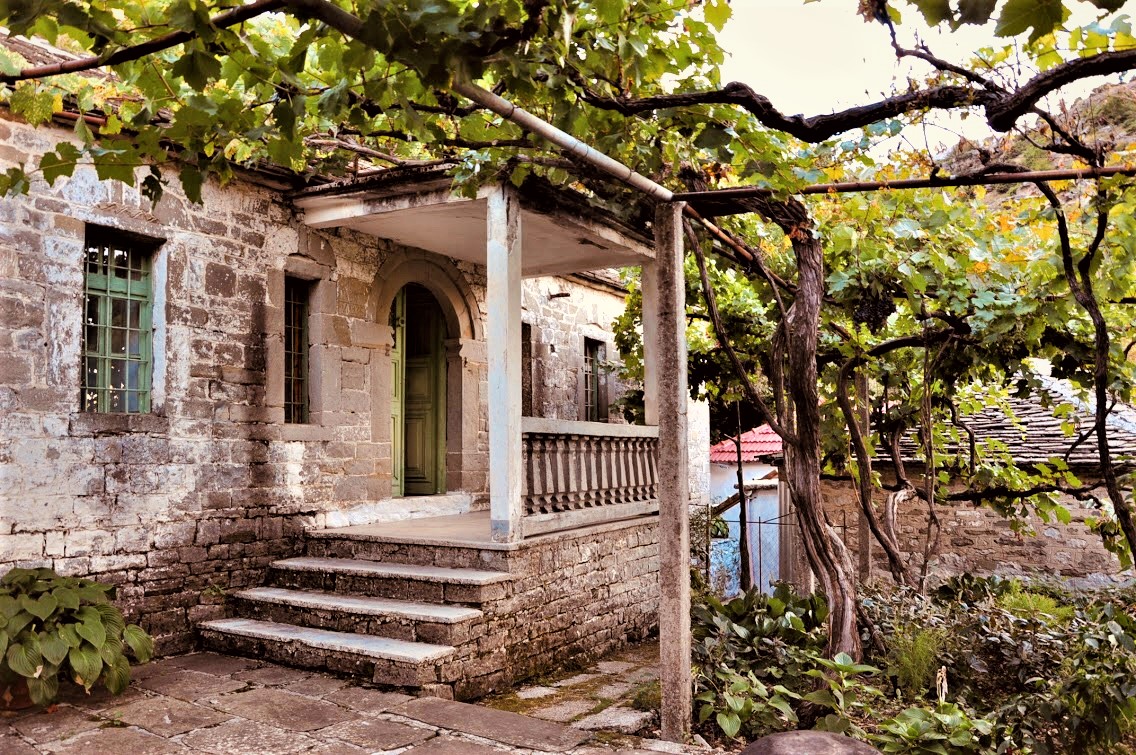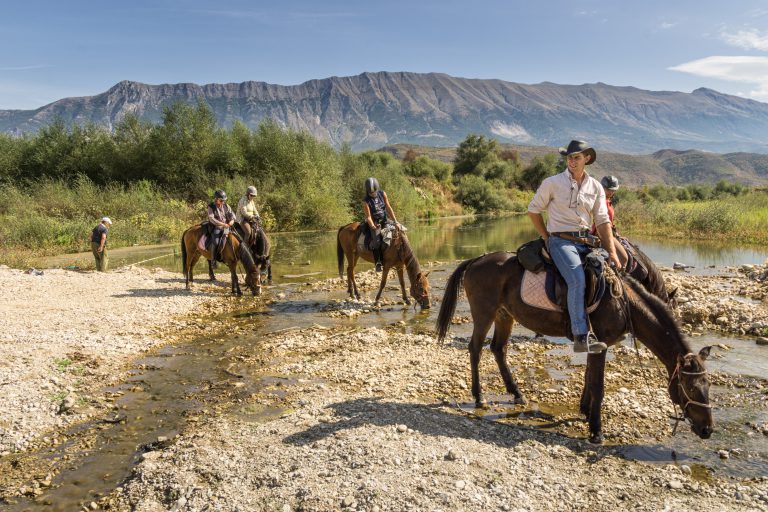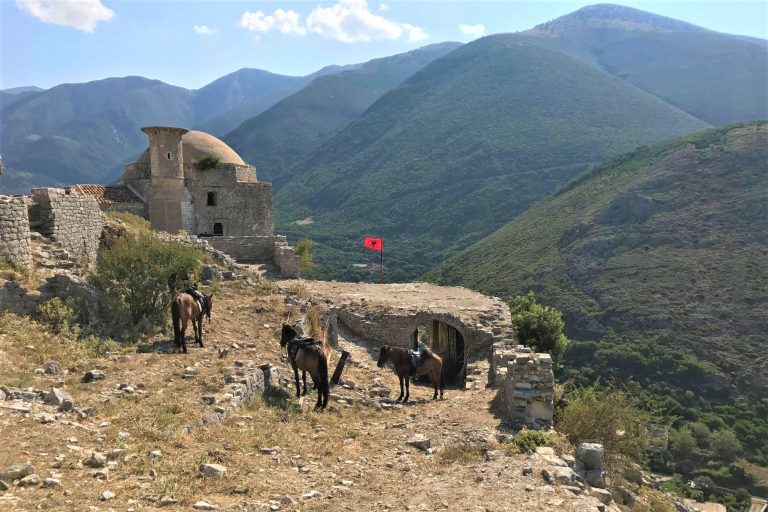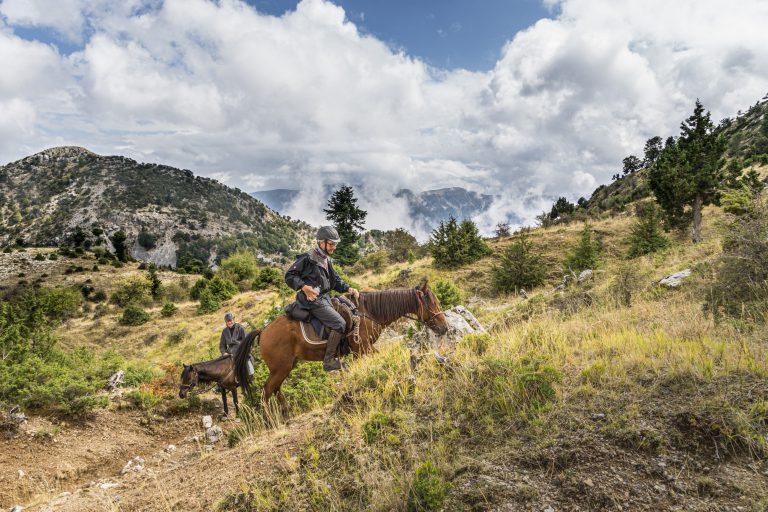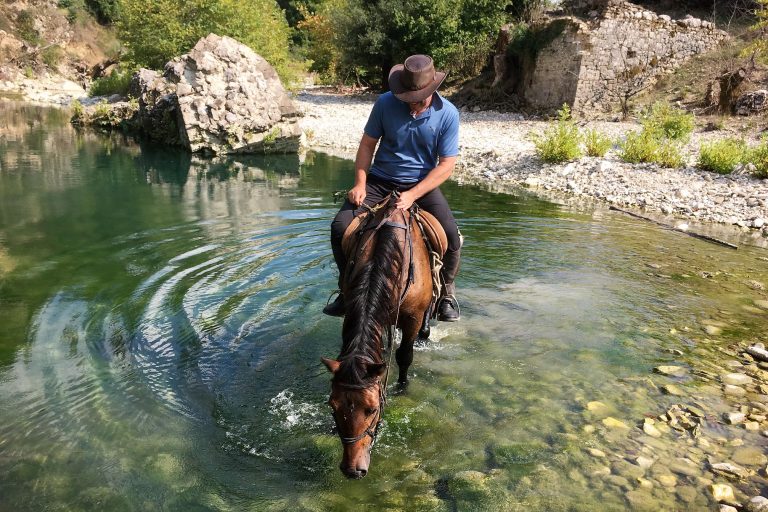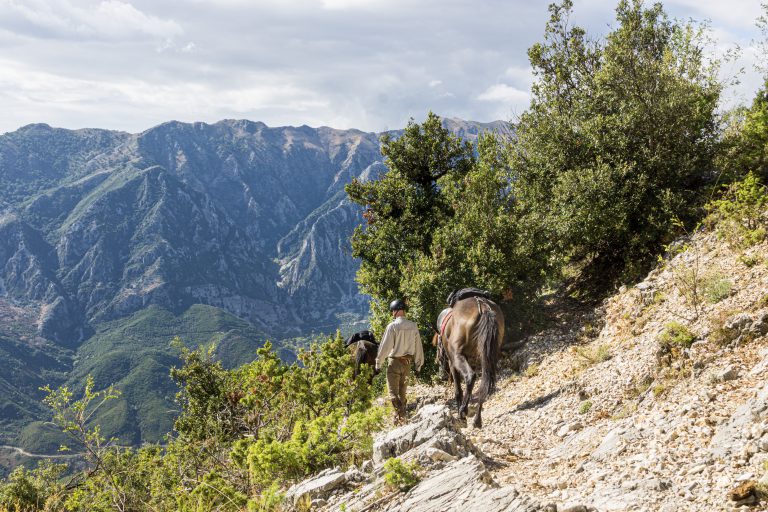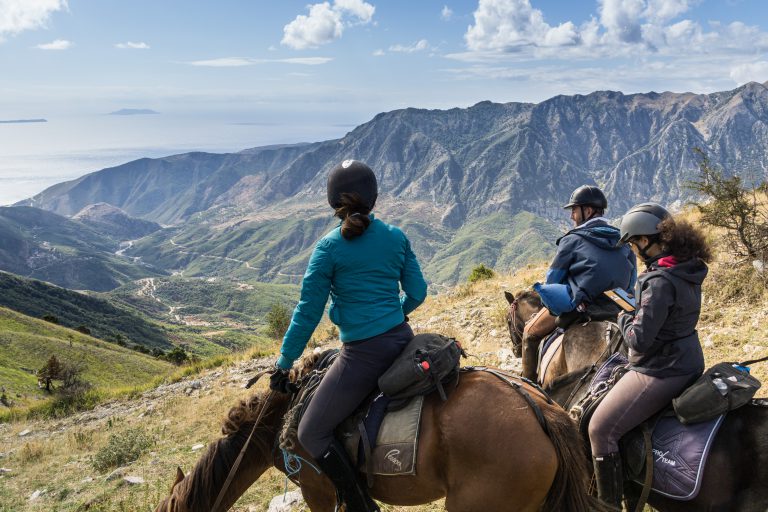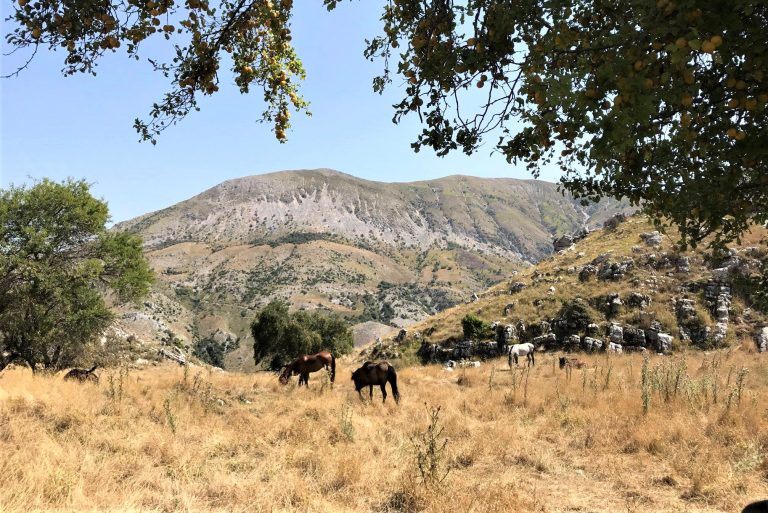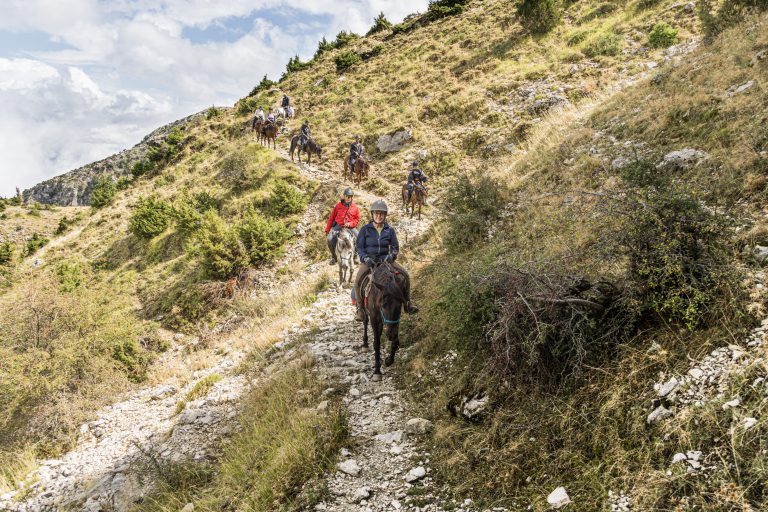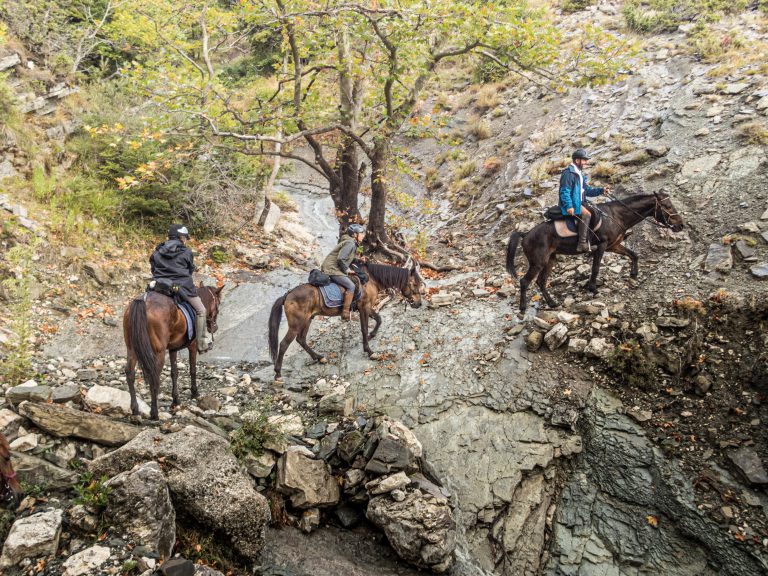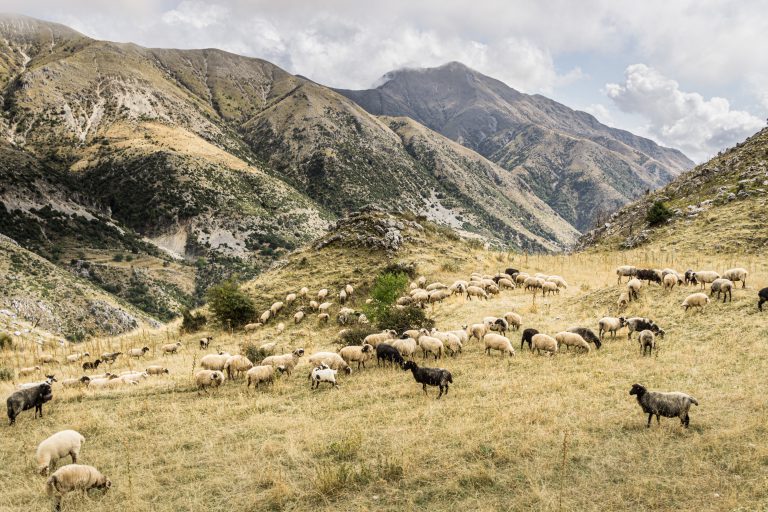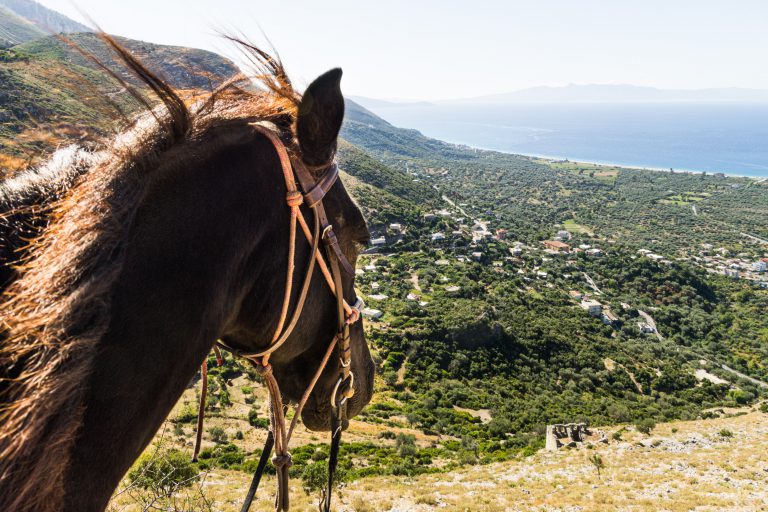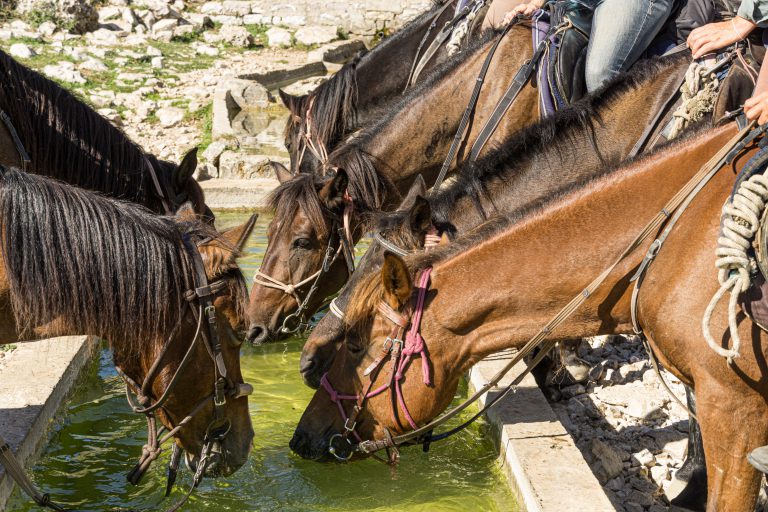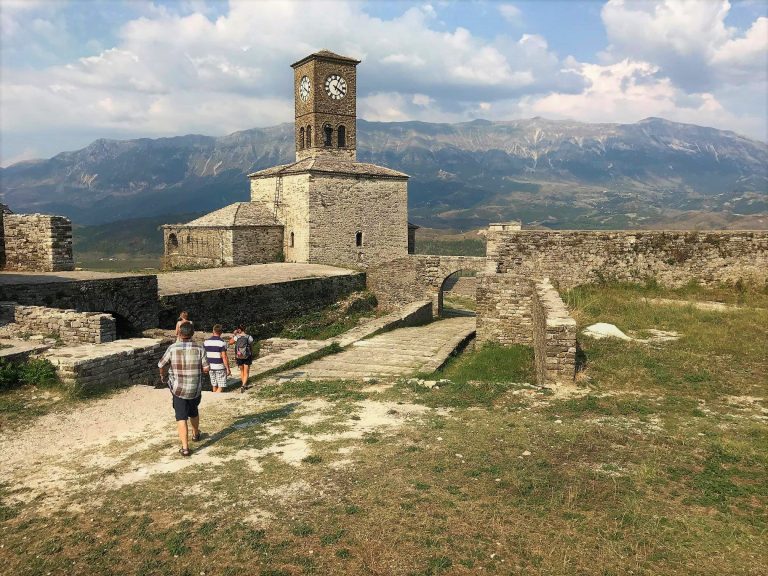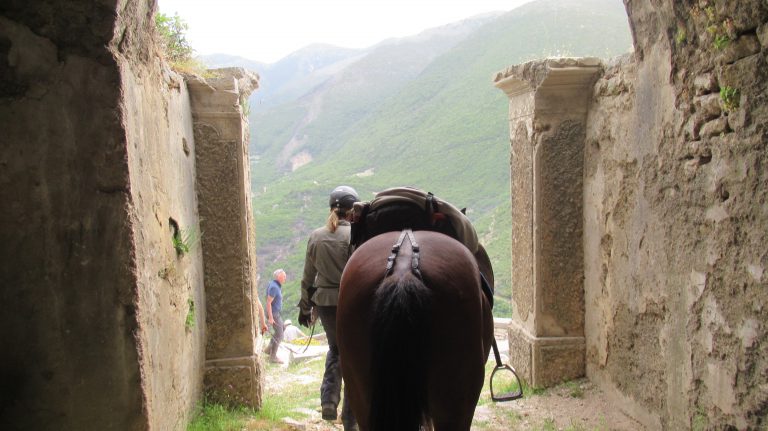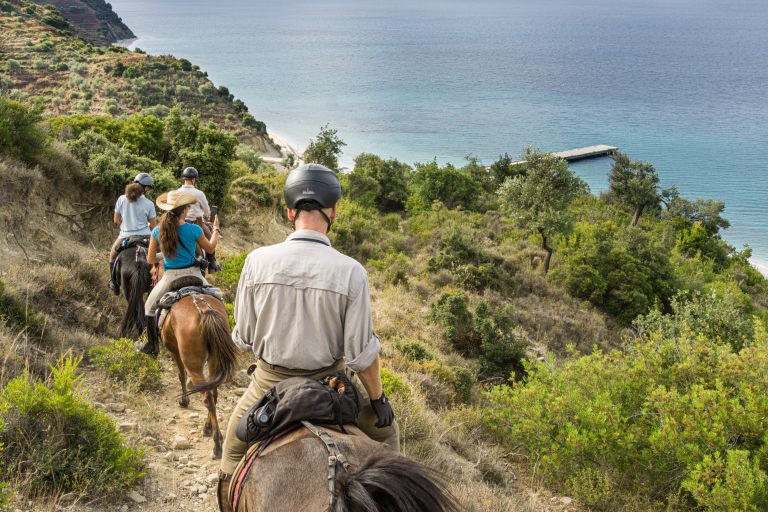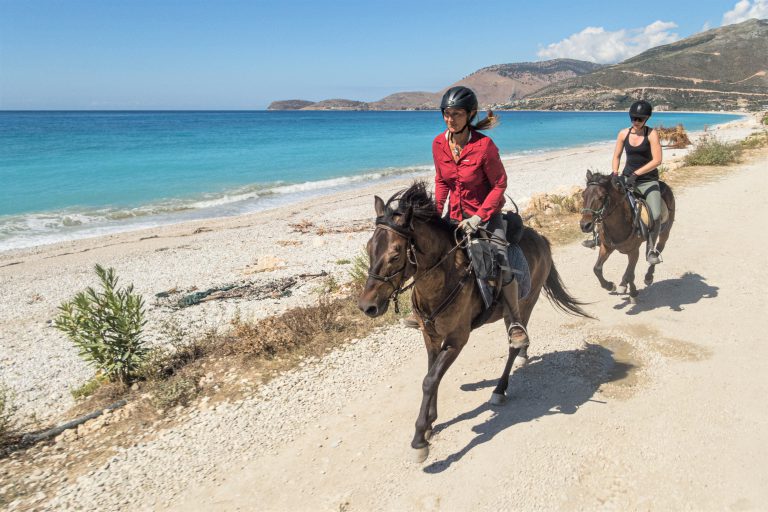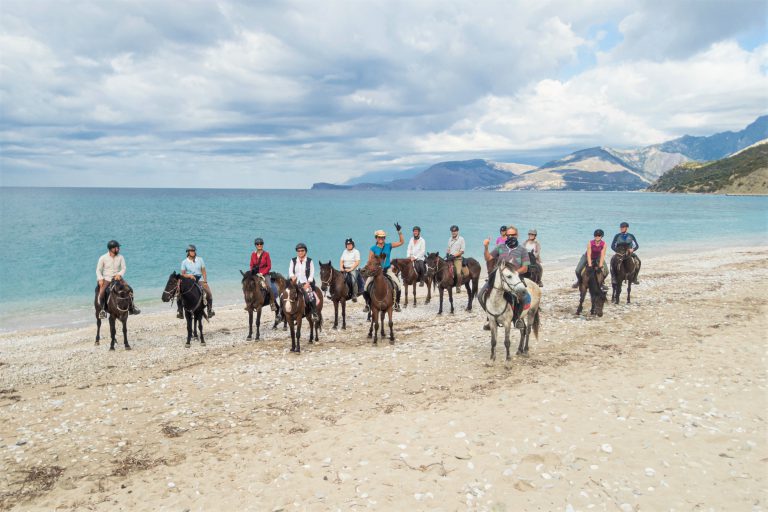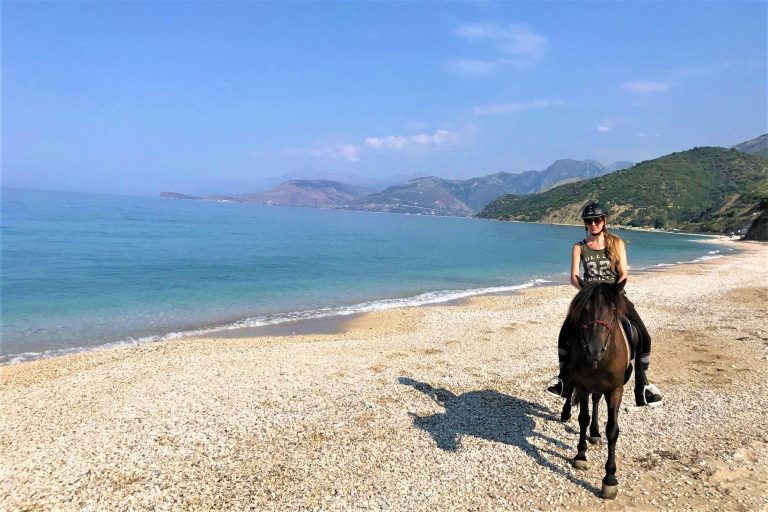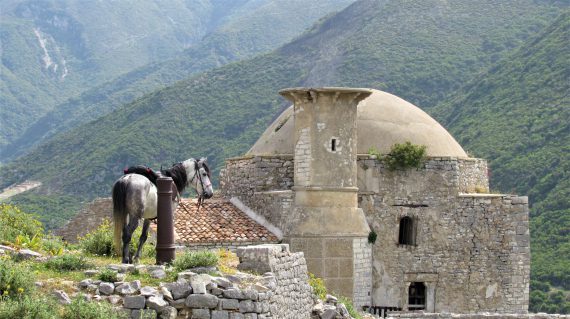
War Trail
Albania
The War Trail is a tour for experienced riders, ready and fit for a demanding ride. We will follow in the footsteps of King Skerdilajd’s ancient army in times when he served Queen Teuta and fough Romans, some 2300 years ago. We will discover fortresses abandoned in the wilderness, picturesque coastal villages, and Albania’s characteristic 20th century… bunkers. We will cross high mountains, traverse spectacular valleys and plunge into the salty waves of the Ionian Sea on our brave, Albanian horses.
-
Days overall8 daysDays in saddle6 days
-
Group size12Available
-
StandardBalkan hospitality (under roofs and in bed linen)Luggageno limit kgFoodlocal cuisine, vegetarian available
-
Skillswalk, trot, canter, gallop, required mountain riding experience
The trail leads through rocky mountains inhabited by shepherds, as well as through fishing villages along the sea cost. We will follow the history, sometimes very stormy, of wars and unrests that rolled through Albania throughout ages. The conquest trail taken by the the Illyrian King Skerdilajd 2300 years ago will take us to ancient ruins and bridges, medieval castles and monasteries standing next to bunkers and military infrastructure. During the communism period leaders of Albania, obsessed with the „western enemy”, covered the country with 750 000 bunkers, nowadays left empty or adapted for various purposes.
The guides are trully passionate about horses and riding. Years ago they took on a challenge of recreating the Albanian horse breed (a mix of tarpan and Arab horse) that went on a brink of extinction. They run a breeding programme aimed at recreating the breed for trail riding purposes. As a result you will ride a rather small-framed, but strong, powerful and brave mountain horses.
This trail requires very good physical condition and a lot of riding experience in trail and mountain riding. Good balance, solid skills and effective communication with the horse are crucial. The group canters at every possible occasion, sharp turns and small jumps are quite common during canters, there’s a lot of sudden transitions between gaits due to terrain obstacles. There are parts of the trail where it’s necessary to dimount and lead the horse, often on narrow, steep and mountainous paths. The War Trail is considered one of the most difficult classified horse trails in Europe!
We recommed riding in helmets.
Rider weight limit for this trail is set to 90 kg / 200 lbs.
- Accomodation in a hotel in Gjirokastra and at local hosts’ houses during the trail
- All meals (starting with dinner on arrival day to breakfast on departure day)
- Local, English-speaking guides for the entire tour
- A horse with full tack and equipment
- Tourist insurance covering high-risk sports
- Flight tickets to and from Tirana / Flight tickets to and from Korfu and ferry to Saranda
- Transfer to and from Tirana (around 90 euro) or Saranda (around 50 euro)
- Entry tickets to Antigonea and donations in churches along the way (around 15 euro in change)
- Optional: single room supplement (30 euro per night, where available, paid on the spot)
- Minor expenses (souvenirs, additional snacks, admission tickets in free time, etc.)
- Optional: tips for guides
- Day 1 Gjirokastër
- Day 2 Gods of Light
- Day 3 In the Footsteps of Ancient Soldiers
- Day 4 The Ionian Sea
- Day 5 The Battlefield
- Day 6 Mountain and Valley
- Day 7 In our own footsteps
- Day 8 Last Day in The Saddle

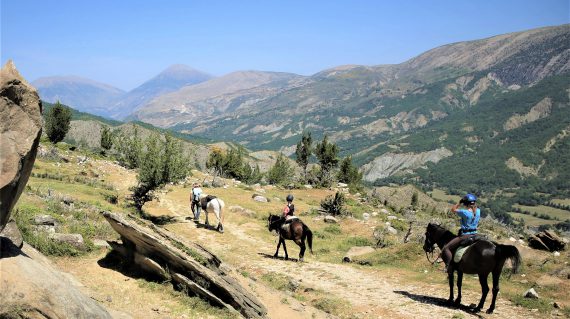
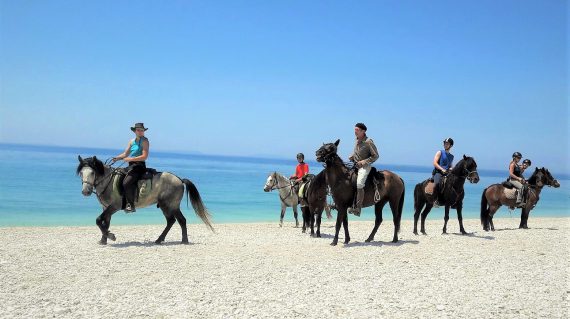
Riders spend the first and the last night at a hotel in Gjirokastra. On the horse trail we stay with local families, at their homes. The standard differs, but we always have a roof over our heads, beds with linen to sleep in and local dishes to enjoy. Rooms are shared, single rooms are available on the first and last night (30 Euro per night). We taste local food and accompany local Albanians in their everyday, routine tasks.
The traditional Albanian cuisine is based on different meat and various, delicious types of cheese. Ecological fruits and vegetables, honey, jams, eggs, bread, desserts and sweets will be served, too. We will drink local water, herbs brews, and – of course – local wine and raki.
Equipment
You will ride in good quality English-type trail saddles. Bridles are of regular construction, we use bits. The equipment in general is what most European riders are used to.
Every horse is equipped with small saddlebags for water and takeway food (sometimes we eat in the wild, sometimes are hosted for lunch). Additional straps (for attaching a raincoat) might come in handy.
Please note: we recommend using a helmet while riding.
What you should take with you
The tour in Albania is quite comfortable – as for a trail ride. A car transports all our belongings between particular spots. Every night the group is hosted at houses, no need for sleeping bags and mats. During the day you will need only the basic personal belonging (documents, mobiles,), everything else will be waiting at the destination point in the evening.
- passport
- some cash, Euro is common in Albania
- electronics – mobile, camera
- flashlight, headlamps are handy
- a canteen or other water containers (it might be an empty plastic bottle)
- sunscreen
- swimsuit and beach towel
- head cover (against heat and Sun)
- riding clothes (breeches, gloves, helmet, etc.,)
- trekking shoes/boots
- lightweight raincoat
- flip-flops
| Date | Trip Status | Price | Spots | |
|---|---|---|---|---|
2 May 2026 - 9 May 2026
|
Full group, English-speaking guide/pilot |
1540 € |
0 |
|
16 May 2026 - 23 May 2026
|
Full group, English-speaking guide/pilot |
1540 € |
0 |
|
30 May 2026 - 6 June 2026
|
Available, English-speaking guide/pilot |
1540 € |
3 |
|
13 June 2026 - 20 June 2026
|
Available, English-speaking guide/pilot |
1540 € |
4 |
|
27 June 2026 - 4 July 2026
|
Available, English-speaking guide/pilot |
1540 € |
12 |
|
25 July 2026 - 1 August 2026
|
Available, English-speaking guide/pilot |
1540 € |
3 |
|
15 August 2026 - 22 August 2026
|
Available, English-speaking guide/pilot |
1540 € |
12 |
|
29 August 2026 - 5 September 2026
|
Available, English-speaking guide/pilot |
1540 € |
12 |
|
12 September 2026 - 19 September 2026
|
Available, English-speaking guide/pilot |
1540 € |
4 |
|
26 September 2026 - 3 October 2026
|
Available, English-speaking guide/pilot |
1540 € |
10 |
|
3 October 2026 - 10 October 2026
|
Available, English-speaking guide/pilot |
1540 € |
2 |
